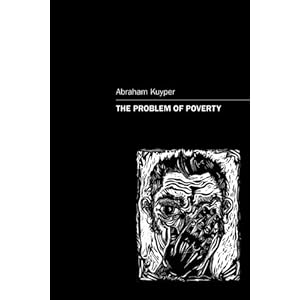
In this paper Ericson examines the notion that Kuyper was influenced by the Romantic movement.
He claims two Kuyperians have maintained this position - however, he doesn't name the two.
Ericson's thesis is that Kuyper rejects Romanticism and that Kuyper saw Romantic and Enlightenment thought as allied, the one issuing from the other.
He starts by outlining the contours of Romanticism then examining some of Kuyper's key writings and in particular 'Pantheism destruction of the bondaries' shows how these contours are absent in Kuyper and that he even undermines them.
He focuses on the term 'organic'. A term much loved by the Romantics and much used by Kuyper. Kuyper uses the term imprecisely. Kuyper applied the term to:
- the organic unity of the body of Christ
- the organic unity of the cosmos
- the organic character of Encyclopedia
- the organicism of science
- the organicism of theology
He notes that for Kuyper 'the notion of organic seems to mean coherence, fittingness. All things fit together coherently. And the reason that things are inextricably intertwined in an overall unity is that God has placed an order in his creation.' (p. 223)
Ericson is Professor of English at Calvin College in Grand Rapids, Michigan. He is the editor of Academic Freedom and Christian Scholarship (Eerdmans, 2000) and author of Solzhenitsyn and the Modern World.
Roger D. Henderson 'How Abraham Kuyper became a Kuyperian' Appendix to Abraham Kuper The Problem of Poverty (Sioux Center, IA: Dordt College Press, 2011)
Previously published in Christian Scholar's Review 22 (1992): 22-35.
Hendrson's aim is to examine why Kuper didn't end up as a liberal theologian as did so many of his University of Leiden contemporaries. He looks at a number of different context: Kuyper's family background, his goals and achievements and his conversion. Their is alos a short biographical introduction.
The paper is a helpful examination of the early life of Kuyper and the early influences that shaped him.
Roger Henderson is a former professor of philosophy at Dordt College. He now lives in The Netherlands.
James C. Schaap 'A writing exercise in identity: Abraham Kuyper's To Be Near Unto God' In J Kok (ed) Celebrating the vision: the Reformed perspective of Dordt College (Sioux Center, IA: Dordt College Press, 2004): 39-54.
Schaap recently rewrote Kuyper's devotional classic To Be Near Unto God. This short piece explains why he came to do that. One thing that he discovered was that 'those who claim that the inheritors of a Reformed or Calvinist worldview have no tradition of piety are, at best, uniformed. No one can read this book and come away believing such nonsense. Kuyper's spirituality is a witness, a century after the devotions were penned' (p. 44).
James Schaap blogs here and is professor of English at Dordt College



2 comments:
It is James Calvin Schaap, not John.
Roger Henderson now lives in the Netherlands, sadly, he no longer teaches at Dordt College.
Alida
Hi Alida,
Thanks for that - I've now updated the info.
Post a Comment